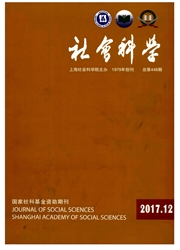

 中文摘要:
中文摘要:
以往研究将影响人们健康状况的主要社会因素划分为远端、中端和近端因素,但对于不同因素的相对作用缺乏比较研究。本研究将这些因素概括为制度保障、家庭支持和个体选择三个层次,构建了“健康的社会影响因素理论模型”。通过“中国综合社会调查数据(CGSS 2010)分析发现:在制度保障方面,由于城乡基本医疗保险制度的内在分割,使得医疗保险的保障作用存在差异化特征。拥有城镇基本医疗保险人口的自评健康状况明显优于“新农合”人口,但这种差异随着人们社会经济地位的增加而有所减弱。在家庭支持方面,婚姻和家庭收入分别发挥情感支持和工具支持功能。在婚者和高家庭收入者相对拥有更高的自评健康状况。在个体选择方面,经常从事健康行为的人比较少从事健康行为的人自评健康状况更好。在相对作用方面,制度保障因素对人们健康状况的影响作用不及家庭支持作用,更不及个体选择效应。
 英文摘要:
英文摘要:
Previous researches divided the main factors which affect the health status into the distal,mid-range and proximal factors, however, there were few studies focus on the relative effects of differentfactors. According to the metaphysical characteristic, these factors are summarized into institutionalinsurance, family support and individual choice. Besides, present research constructs theoretical modelof social factors influencing health. Using data from China General Social Survey 2010, finds that, in theaspect of institutional insurance, because of the internal segmentation of the urban and rural basicmedical insurance system, the guarantee function of medical insurance is different. The self rated healthof those who have urban basic medical insurance are obviously better than those who have the new ruralcooperative medical system, but the disparity would be weakened with the increase of socio-economicstatus. In the family support, marriage status and family income are playing the emotional andinstrumental support functions respectively. The married persons and higher family income earners reporta higher self rated health. In terms of individual choice, people who often engage in health behaviors aremore healthy than their counterparts. Relatively speaking, the influence of system security on people'sself evaluationhealth is not as the family supports', even worse than individual choices'.
 同期刊论文项目
同期刊论文项目
 同项目期刊论文
同项目期刊论文
 期刊信息
期刊信息
